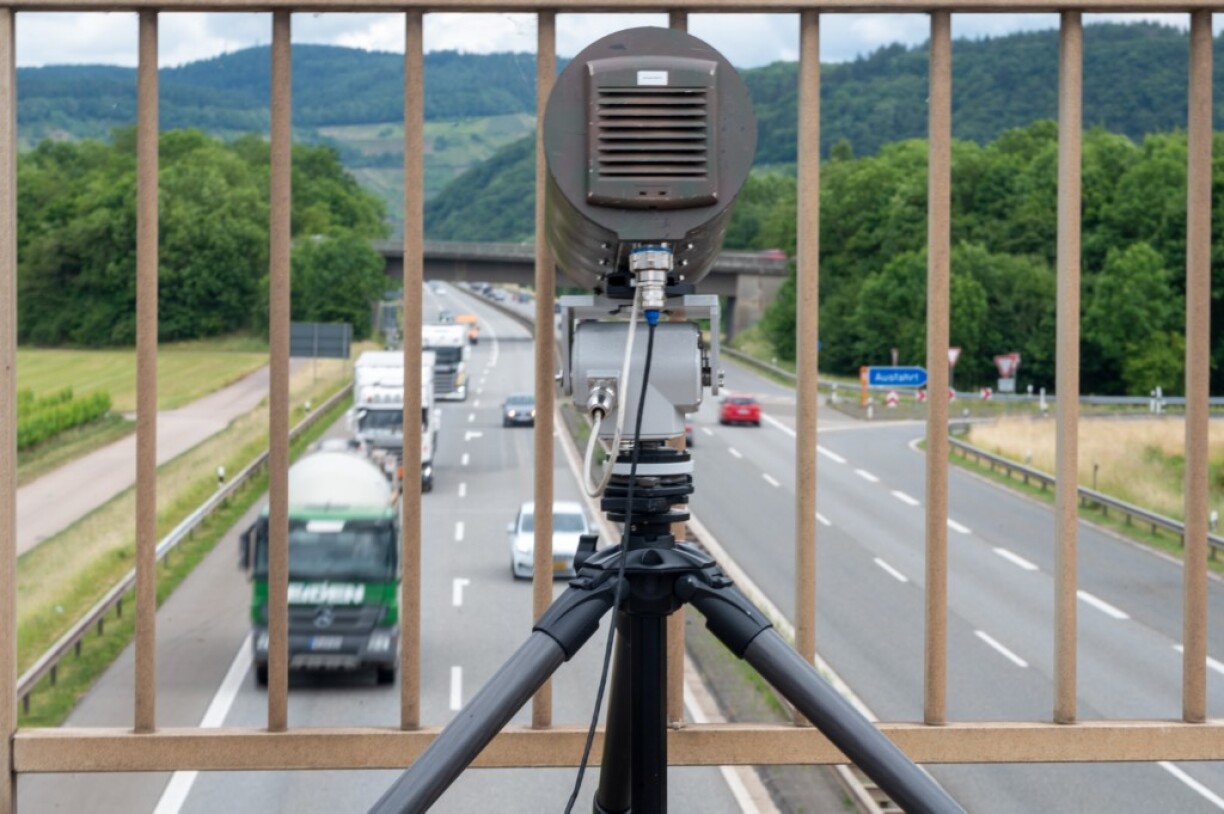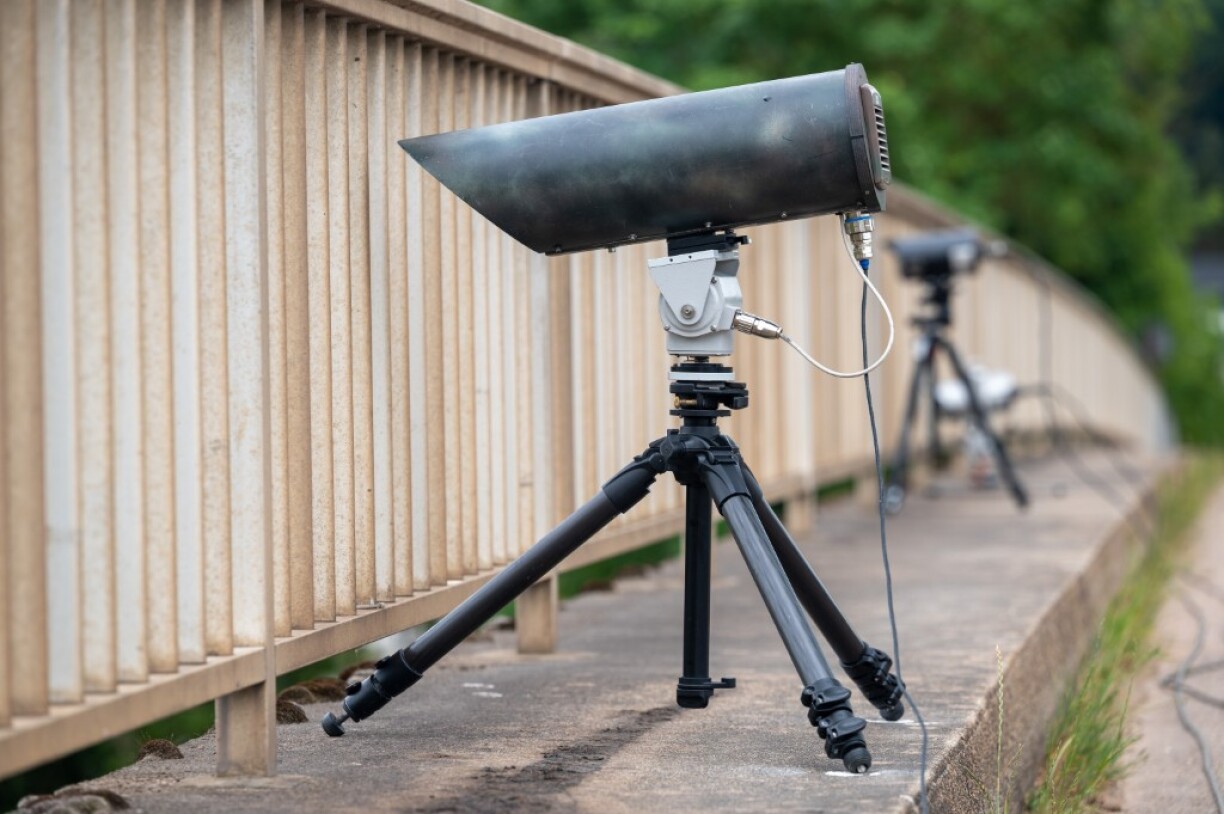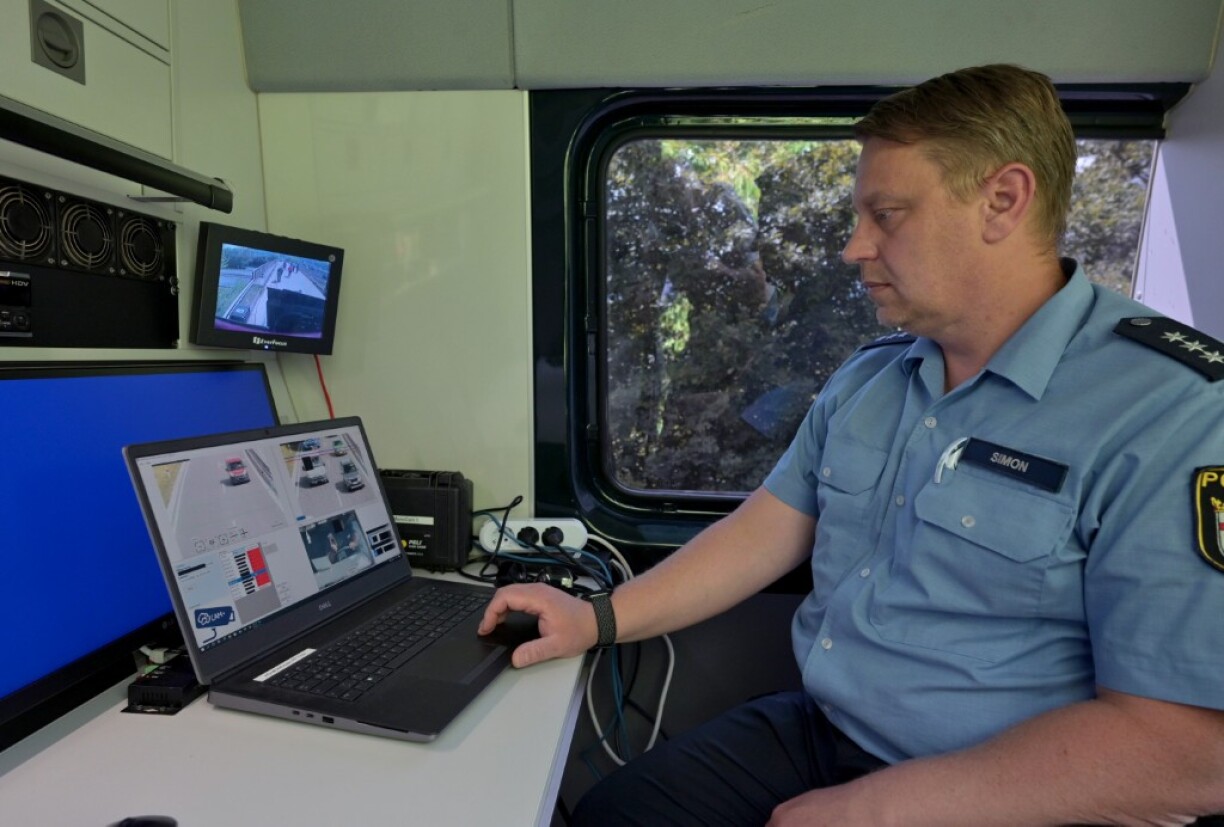
“The pilot project proves that Monocams have a preventive effect and can be used to improve road safety in Rhineland-Palatinate. That is why we want to be the first federal state to introduce Monocams,” said Michael Ebling, Minister of the Interior (Socialist Party Germany – SPD) of Rhineland-Palatinate, on Monday.
Elbling presented a preliminary review of the pilot project, which was conducted by the Trier and Mainz police prefectures.
“We found that our new approach reduced the number of offences related to distracted driving by at least half,” the minister explained, before stressing that “in many cases, the preventive effect goes even further.”
The federal state’s aim with this new mobile speed camera technology is to “reduce accidents caused by distracted driving.”
In 2022, 1,041 distraction-related accidents were recorded by the police in Rhineland-Palatinate.

In the future, every police headquarters in Rhineland-Palatinate will be equipped with such a mobile speed camera system.
The Minister of the Interior announced that in the next amendment of the Police and Public Order Act, “we will draw up a proposal, the legal basis of which will allow the permanent use of the Monocam. We will of course also take into account data protection issues.”
The Monocam system, developed in the Netherlands, detects in real time when a car or lorry driver grabs their smartphone or tablet while driving and automatically takes a picture.
The images are instantly transmitted to a computer and analysed by trained police officers, as not all pictures are clear.

Anyone caught using a mobile phone while driving is fined €100 and loses one point on their driving licence.
“The introduction of such a system in Luxembourg could indeed be envisaged” on the condition that “a model proves to be reliable,” Minister for Mobility François Bausch had assured in May 2022.
Two MPs from the Democratic Party (DP) had enquired about the pilot project in parliamentary question.
The Minister noted, however, that two conditions must be met before this new generation of speed cameras could be used on Luxembourg’s roads.
The first step would be to adapt the legislation and check whether the law on data protection is in line with the use of “Monocam” speed cameras, since “the use of data collected by speed cameras concerning the use of mobile phones while driving and the resulting prosecution are not currently authorised,” according to Bausch.
The second would be a technical modification: “The computer tool of the Automated Control and Sanction Chain (CSA) of the National Processing Centre should be adapted to allow automated sanctioning of offences related to the use of mobile phones while driving.”